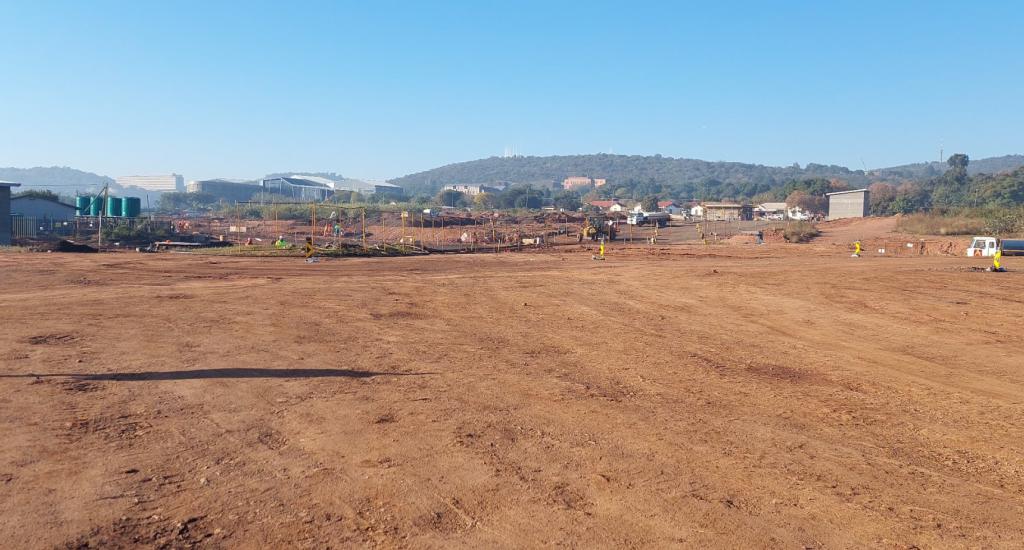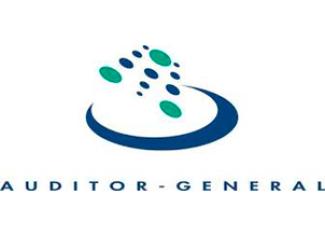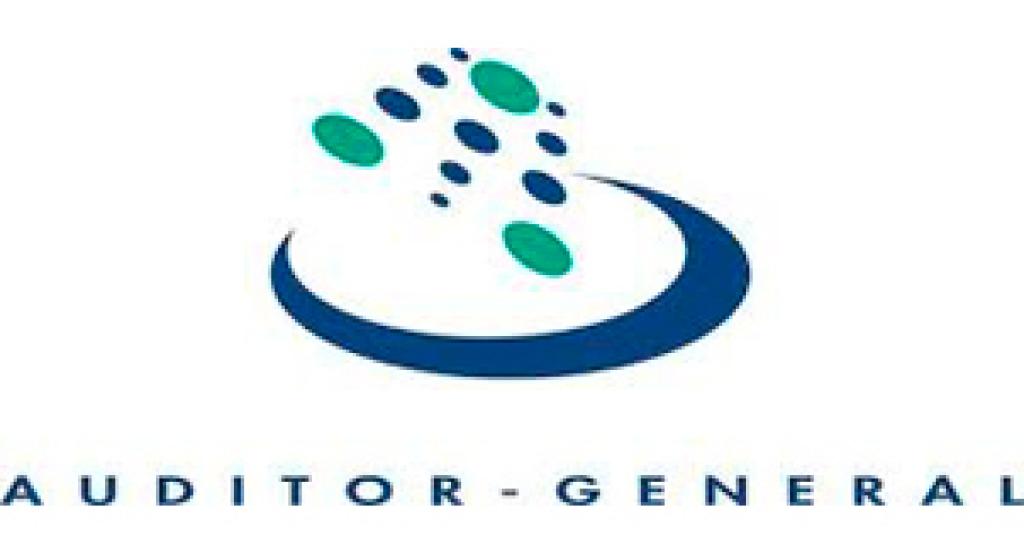Good foundation
laid for 7th Administration to improve on previous audit outcomes: AG Maluleke

Auditor-General (AG) Tsakani Maluleke has called on government to build on the improved audit outcomes delivered by the previous administration. Tabling the 2023/24 general report for national and provincial departments, their entities and legislatures to Parliament’s Standing Committee on Public Accounts, Maluleke said the audit outcomes over the term of the previous administration showed “an improvement in the ability of national and provincial government to transparently report on their finances and performance”.
However, she raised a concern regarding the high-impact auditees that have the biggest impact on the lives of South Africans and on government finances, as they have not yet demonstrated good performance against their planned targets, and institutionalised strict financial and compliance disciplines.
These auditees contribute to the delivery of critical services in the areas of education, skills development and employment; energy; environmental sustain- ability; financial sustainability; health services; human settlements; infrastructure development; roads and transport; safety and security; and water and sanitation. They also include state-owned enterprises and other key public entities.
These high-impact auditees were responsible for approximately 77% of the 2023/24 expenditure budget of national and provincial government. They continued to have the worst audit outcomes and improved at a slower pace than other auditees.
“It is worth reporting that the last administration dealt with the COVID-19 pandemic and various disasters, including the floods in KwaZulu-Natal and the Eastern Cape. In our special reports, we highlighted the good work done by the 6th Administration in dealing with these disruptive events, but also reported on weaknesses in how auditees responded,” said the AG.
Engaging stakeholders
Maluleke added that through numerous engagements with different stakeholders in the accountability ecosystem, commitments and actions were solicited from key role players.
The ecosystem is made up of all role players in national and provincial government, Parliament and the provincial legislatures that have a part to play in enabling a culture of performance, accountability, transparency and institutional integrity. This system includes the Auditor-General of South Africa (AGSA) as the country’s supreme audit institution as well as the citizens of South Africa.
“Improved service delivery and the responsible use of the limited funds available will only be possible when we have capable, cooperative, accountable and responsive institutions that deliver on their mandates. I urge all role players in the accountability ecosystem, particularly those with direct control over service delivery, to work deliberately and with urgency towards a heightened level of accountability, transparency, integrity and improved service delivery for all South Africans.”
Service delivery risks
AG Maluleke urged the new administration to continue using her office’s work as it provides critical insight into weaknesses in national and provincial government that will remain obstacles to the achievement of the National Development Plan 2030 and the Medium-Term Development Plan of the 7th Administration, if not decisively addressed. The risks:
- Basic services such as education, healthcare, housing, transport and water cannot be delivered without infrastructure. The country’s existing infrastructure must also be properly maintained to ensure that it remains in a workable and safe condition throughout its lifespan.
“Our audit work over the 6th Administration’s term incorporated numerous site visits to inspect the progress on and quality of infrastructure projects. We identified and reported on significant deficiencies every year – in 2023/24, we reported findings on 86% of the 143 projects we visited. All too often, infra- structure delivery projects are delayed, the work done is of poor quality, and projects cost more than planned. There are also examples where newly built infrastructure is standing idle and not being put to use. Once again, we report on existing infrastructure that is deteriorating because it is not properly maintained.”
- The modernisation and integration of systems and the harnessing of the benefits of technology is a cornerstone in improving the capacity of state institutions and the effective delivery of services. However, the project management weaknesses and gaps in intergovernmental coordination of infrastructure projects are also evident in the delivery of new systems and technologies. Projects are delayed and cost more than planned. Implemented systems are underutilised and often not integrated with existing systems in government.
“The global emergence of hackers targeting government institutions requires increased control and vigilance around cybersecurity. We annually assess cybersecurity controls to alert auditees to vulnerabilities that can be exploited through a cyberattack. In 2023/24, we identified control weaknesses at 70% of the 77 auditees we tested in this regard. The impact of national and provincial government not adequately protecting their systems is evident from the recent, well publicised incidents of successful cyberattacks.”
- Departments and public entities are dependent on service providers and contractors to deliver on their projects and programmes and to support their operations. Continued non-compliance with procurement legislation leads to unfair and uncompetitive processes, which often result in financial losses and contractors not delivering what they were contracted to do. Poor contract management and a reluctance to hold suppliers accountable for late and sub-quality delivery is one of the main root causes of project failures and financial loss.
“Through the material irregularity (MI) process, we have identified multiple cases of financial loss and harm to the public due to procurement and contract management non-compliance and suspected fraud. In total, 63% of auditees had findings on non-compliance with procurement and contract management legislation in 2023/24; findings at 23% of these auditees were material.”
- Overspending and the poor quality of spending reduce the already limited funds available. The main reasons for the continuing financial losses and waste, especially at high-impact auditees, were poor payment practices, uncompetitive and uneconomical procurement practices, limited value and benefit for money spent, and weaknesses in project management. The fruitless and wasteful expenditure over the 6th Administration’s term totalled R10.34 billion.
“The funds government budgets for service delivery activities are reduced by claims made against departments, and by auditees overspending their budgets and being in poor financial health. The budget overspending over the administration’s five years was R38.83 billion. By the end of 2023/24, the estimated settlement value of claims against departments totalled R105.57 billion and 41% of auditees had a combined deficit of R69,33 billion.”
- The no-consequence culture in national and provincial government will continue to slow down progress towards improved service delivery and financial performance. When officials face consequences for their actions, this helps auditees to both recover the losses caused by those officials and deter others from disregarding legislation and perpetuating a culture where officials are paid their salaries without fulfilling their responsibilities.
“The lack of consequences is most evident in the following areas: poor and slow response to investigating allegations of financial and supply chain management misconduct and fraud indicators; investigating and dealing with irregular expenditure and fruitless and wasteful expenditure; and material non- compliance with legislation on consequence management.”
State of national and provincial government
The AG reported that audit outcomes improved from 2018/19 – the last year of the 5th administration – and the number of clean audits increased from 93 to 142. More auditees improved their audit outcomes than regressed every year over the term of the administration. By 2023/24, 139 auditees had improved their outcomes and 50 had regressed – an overall net improvement of 24%.
“Just over 40% of auditees obtained an unqualified audit opinion with findings. This is not a desirable outcome, and auditees should not remain comfortable in this category as they currently do,” cautioned Maluleke.
The audit outcomes of the legislature sector improved significantly from 2018/19, showing a net improvement of 60%. Parliament and eight of the provincial legislatures now have clean audits, setting an example for other sectors.
Provincial outcomes showed an overall net improvement of 31% from 2018/19. The big- gest net improvements were in North West (56%), followed by the Free State (44%), KwaZulu-Natal (33%) and Gauteng (30%). The Western Cape, Gauteng, KwaZulu-Natal and the Eastern Cape are the provinces with the highest number of clean audits.
Recommendations
“Through the insights from our audits during the administrative period and the real-time audits we performed on the funding for COVID-19 and flood-relief initiatives, and our experience with the MI process, we identified three main shortcomings in national and provincial government that hold back progress”, said the AG. The root causes are:
- Inadequate intergovernmental planning, coordination and support.
- Ineffective resource management.
- A culture of no accountability and consequences.
To address these root causes, improve service delivery and proactively manage the risks that can derail the progress made, Maluleke recommended prioritisation and oversight focus by the elected executive authori- ties, members and committees of Parliament and the provincial legislatures on five key matters namely;
- Intergovernmental and institutional planning for delivery on the Medium-Term Development Plan.
- Institutional capacity and effective governance for transparent reporting and accountability.
- Infrastructure, systems and professionalisation as key enablers.
- Managing the risks to ser- vice delivery created by the poor quality of spending and financial mismanagement, weaknesses in procurement and contract management, cybersecurity vulnerabilities, and a culture of no consequences.
- Optimising the MI process as an oversight tool.






